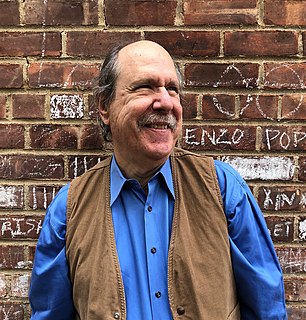A Quote by Thomas Frank
[The right] may never bring prayer back to schools, but it has rescued all manner of rightwing economic nostrums from history's dustbins. Having rolled back the landmark economic reforms of the sixties (the war on poverty) and those of the thirties (labor law, agricultural price supports, banking regulation), its leaders now turn their guns on the accomplishments of the earliest years of progressivism (Woodrow Wilson's estate tax; Theodore Roosevelt's anti-trust measures). With a little more effort, the backlash may well repeal the entire twentieth century.
Quote Topics
Accomplishments
Agricultural
Anti
Back
Back To School
Backlash
Banking
Bring
Century
Earliest
Economic
Economic Reforms
Effort
Entire
Estate
Estate Tax
Guns
Having
History
Labor
Landmark
Law
Leaders
Little
Manner
May
Measures
More
Never
Now
Poverty
Prayer
Price
Progressivism
Reforms
Regulation
Repeal
Right
Roosevelt
Schools
Sixties
Supports
Tax
Theodore
Thirties
Those
Trust
Trust Me
Turn
Twentieth
Twentieth Century
War
War On Poverty
Well
Wilson
Years
Related Quotes
This you may say of man - when theories change and crash, when schools, philosophies, when narrow dark alleys of thought, national, religious, economic, grow and disintegrate, man reaches, stumbles forward, painfully, mistakenly sometimes. Having stepped forward, he may slip back, but only half a step, never the full step back.
When Arthur Schlesinger Sr. pioneered the 'presidential greatness poll' in 1948, the top five were Lincoln, Washington, Franklin D. Roosevelt, Woodrow Wilson, and Jefferson. Only Wilson appears to be seriously fading, probably because his support for the World War I-era Sedition Act now seems outrageous; in this analogy, Woodrow is like the Doors and the Sedition Act is Oliver Stone.
If two or three hundred years from now an earthbound civilization is dying ... and they look back at the opportunity that we have here at the close of the twentieth century to move out into space and they see that we didn't do anything with it ... I don't want history to judge us on having blown this opportunity, and I think history will judge us on this more than on any other issue.
Right now religion has the romantic aura of the forbidden - Christ is cool. We need to bring it into the schools, which kids already hate, and associate it firmly with boredom, regulation, condescension, makework and de facto segregation ... Prayer in the schools will rid us of the bland no-offense ecumenism that is so infuriating to us anticlericals: Oh, so now you say Jews didn't kill Christ - a little on the late side, isn't it?
We are under the stifling regulation and taxes of a predominantly left-wing type of thinking and philosophy. The eight years of Barack Obama have shrouded this country in punitive regulations. We haven't had economic growth higher than one and a half percent for the last eight or nine years, and that was done on purpose. There have been robust times in the past, and there are a lot of people right now that are doing well and are growing. But generally it ought to be much better in the past. There needs to be an economic revival.
Now it is unambiguously clear that trickle-down economics does not work. But what does that mean? That means we have to structure our economic policies to make sure that we have shared prosperity. And you don't do that by giving a tax cut to the big winners and raising taxes on those who have not done very well. Your economic policy has to respond to the way our economic system has been working.
When Theodore Roosevelt was in the White House, he confessed that if he could be right 75 percent of the time, he would reach the highest measure of his expectation. . . . If that was the highest rating that one of the most distinguished men of the twentieth century could hope to obtain, what about you and me?


































